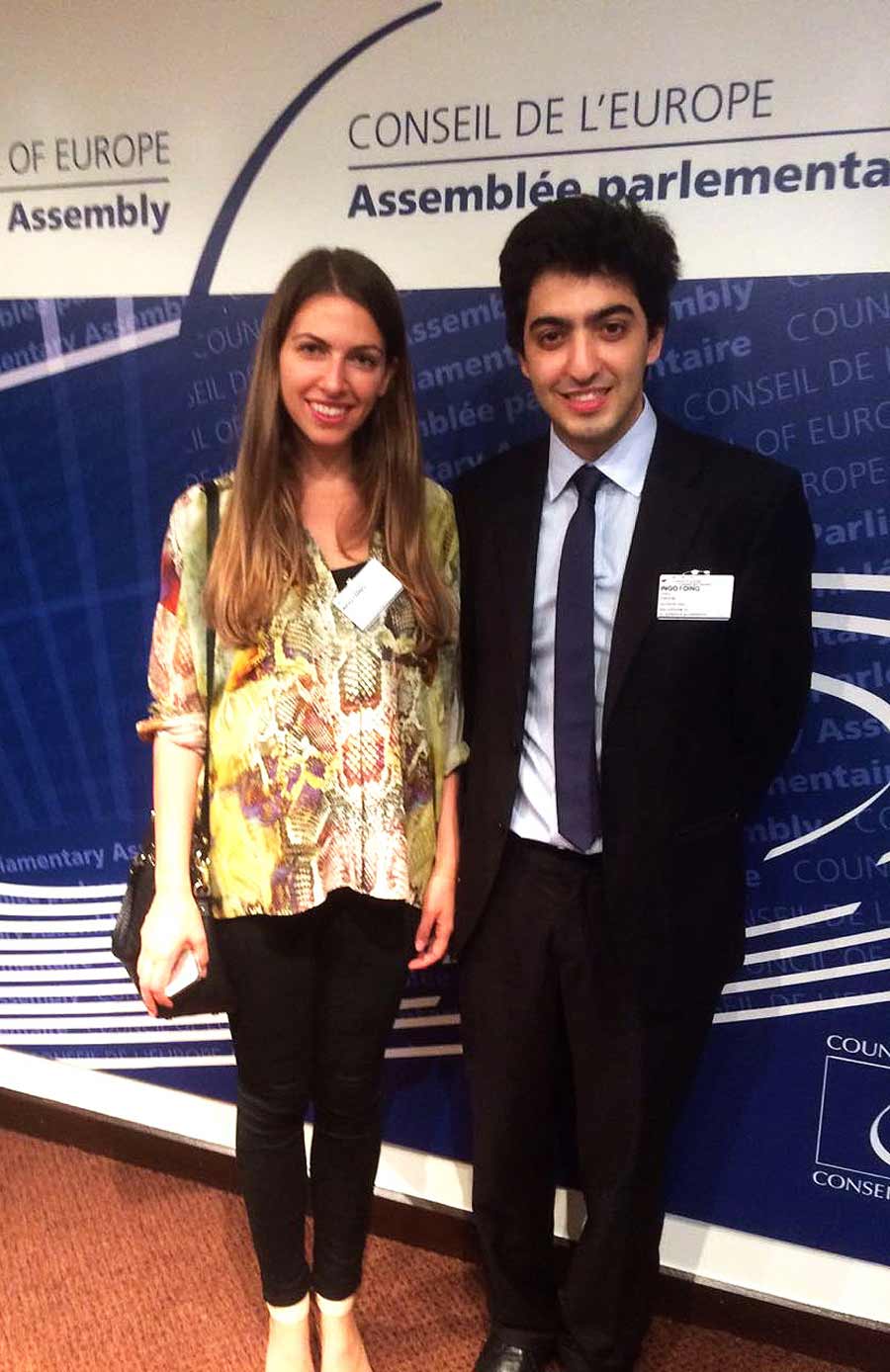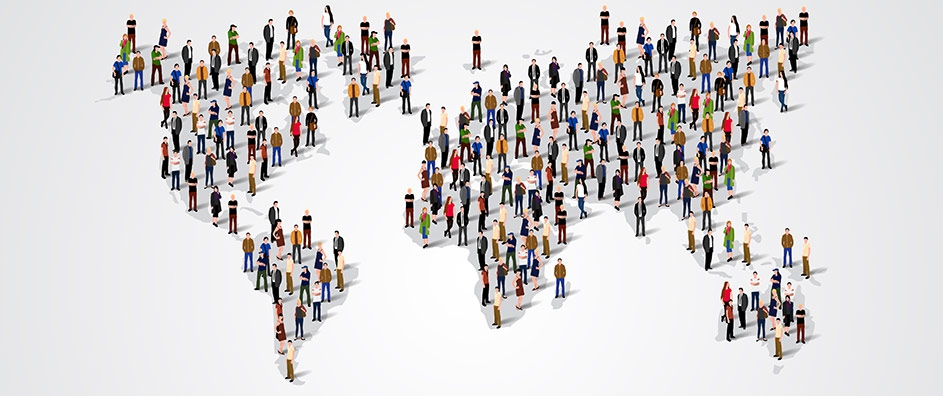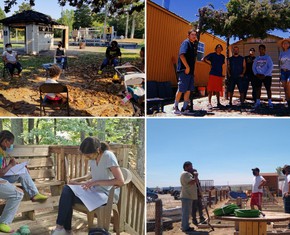The rapid rise in refugees entering Europe requires a new focus on building inclusive societies.
This major theme resounded at two European events last week: the Fundamental Rights Forum, held in Vienna from 20 to 23 June and titled “Rights, Respect, Reality: the Europe of Values in Today’s World;” and the Council of Europe Conference of International NGOs, held in Strasbourg from 20 to 24 June. The Baha’i International Community (BIC) Brussels Office took part in both events, with the aim of emphasizing the Baha’i principle of the oneness of humanity:
Now is the time for the lovers of God to raise high the banners of unity, to intone, in the assemblages of the world, the verses of friendship and love and to demonstrate to all that the grace of God is one. Thus will the tabernacles of holiness be upraised on the summits of the earth, gathering all peoples into the protective shadow of the Word of Oneness. – Abdu’l-Baha, Selections from the Writings of Abdu’l-Baha, p. 20.
In Vienna, the BIC joined some 700 other participants for the event, which was convened by the European Union Agency for Fundamental Rights. State Ministers and Members of the European Commission and the European Parliament attended together with diverse stakeholders and civil society actors. The Forum provided for a dynamic and open conversation between all those present and focused on three themes: inclusion, refugee protection, and the digital age.
The conference in Strasbourg saw international NGOs from forty-seven member countries of the Council of Europe discuss a range of topics, including social cohesion and migration.

BIC representatives Tala Ram (left) and Collis Tahzib (right) at the Council of Europe Conference of International NGOS in Strasbourg.
Commenting on both events, representative of the BIC Brussels Office, Rachel Bayani, said that “These gatherings and the themes they addressed reflect the sincere concern across all sectors of society to ensure that those who have been living here and those who have newly arrived can have dignified lives and contribute to society.”
The President of Austria and Patron of the Fundamental Rights Forum, Heinz Fischer, opened the gathering in Vienna. “The ongoing refugee crisis has brought the discourse on inclusion and equality in European societies to the forefront,” he said. “Diversity enriches our democracies and facilitates our prosperity… It is a fact that xenophobia and fears of ’the other’ are on the rise. But it is also true that we have never had more awareness, as well as robust laws and policies to fight discrimination and inequality, and to prosecute hate crimes.”
In his keynote address to the Vienna Forum, Frans Timmermans, First Vice President of the European Commission, emphasized the importance of building an inclusive society: “We can only succeed…if we succeed in including those who become our neighbors, getting to know them, helping them to express their potential, to build a future for themselves and their families and contribute to the economic and social life of the societies in which they live.”
In Strasbourg, Anna Rurka, President of the Conference of International NGOs, pointed out that “Immigration has not caused the crisis in Europe—there is a crisis in the world at large, of which immigration into Europe is a symptom.”
At a Fundamental Rights Forum workshop, the Baha’i International Community contribution focused on the need to strengthen our shared human identity: “European society today is essentially a sample of the world’s population. To ensure the inclusion and participation of everyone, we need to nurture a sense of common identity and revisit some of our assumptions about human nature.
“Differences between the peoples of the world are assumed to be pronounced, centuries-old, ineradicable, and productive of conflict. Any attempt to foster inclusion needs to revisit that assumption. Today’s reality needs a conception of our identity that is wider, one which expands to include all of humanity. It means that we need to develop a strong sense of loyalty or responsibility towards all of humanity, rather than only towards those sharing similar characteristics. It means that institutions, communities, and individuals look at the interest of each member of the human family, rather than only their own.”
















Comments
Sign in or create an account
Continue with Googleor